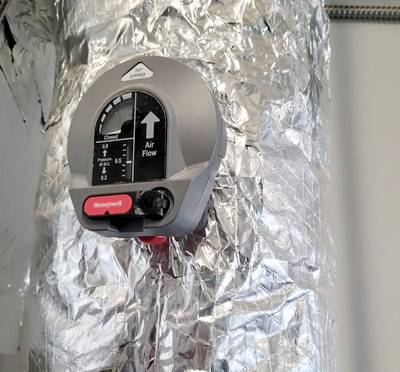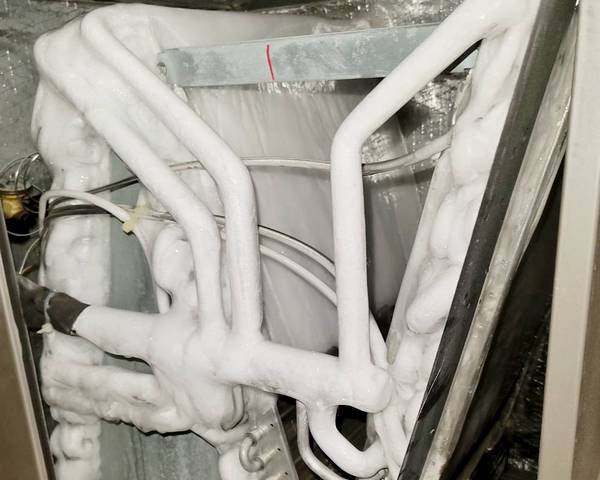Why do AC (and heat pump) coils freeze?

First, we need to understand how air conditioners and heat pumps work in the first place. At the most basic level, they work by transferring heat (or energy) from inside the home to outside the home. They do this by compressing refrigerant, which causes it to heat up, or the opposite – reducing the pressure, which causes the substance to cool. For an air conditioner to work, it must transfer the heat from the air in your home to the coil, which carries the refrigerant. As the warm air from inside your home passes over the cold coils, the heat is transferred to the refrigerant and carried to the outside of the home.
As you can imagine, this depends upon a steady supply of air flow across the coils. The air flow carries the cool air away from the coil and into the house. If the rate of air flow drops too low, the coils can’t shed the cool temperature fast enough, causing it to eventually freeze. Poor air flow can occur due to a couple of failures.
How to determine if your coils are frozen
This part is easy. Remove the cover on your the coil portion of your air handler or furnace. If you see substantial ice buildup on the coils, it’s frozen. See image below.
Quick fixes you can try yourself
- Check the furnace filter. If the filter is clogged and dirty, the quantity of air moving across the coil will drop.
- Check the registers. Homeowners often close registers to help balance air flow to different portions of the house. In most cases, this is fine and the system can handle the changes. However, if too many registers are closed, the overall airflow will drop and freezing can occur.
- Turn off the system and allow it to thaw. This will allow you to determine if either of the steps listed above solved the problem.
Solutions your air conditioning repair technician will investigate
- Low refrigerant levels. Your air conditioner’s ability to cool the home is directly related to the amount of coolant it can move back and forth between the inside and outside of your home. If you have a leak or poorly installed system, low levels of refrigerant can occur. Ironically, low refrigerant levels cause the coils to become colder. Replacing refrigerant isn’t a normal part of maintenance. If your system is low, it means you have a leak.
- Malfunctioning blower motor. If the fan in your furnace or air handler isn’t pushing enough air across the coils, the temperature will drop and freezing can occur. This issue is somewhat uncommon, but it’s worth investigating.
- Malfunctioning bypass system. Zoned systems, especially older versions, sometimes contain bypass ducting. This ducting provides a route for the air to bypass the regular supply ducting for the home and recirculate it back to the air handler. This occurs when only one zone is calling for air conditioning and the air conditioner is a single stage unit. Because the compressor can’t drop to a lower speed, it has do something with the excess capacity.
Bypass ducting systems pass this excess air through a short loop, which rejoins the return air from the rest of the house. Since this air never heated up, it adds unintentional cooling to the system. Over time, this will freeze the system. Due to this problem, bypass ducting needs thermal shutoff switches which sense when the temperature drops too low and shuts off the system. If this switch is missing or malfunctioning, the coils will freeze. The image below is from a failed bypass temperature switch.


